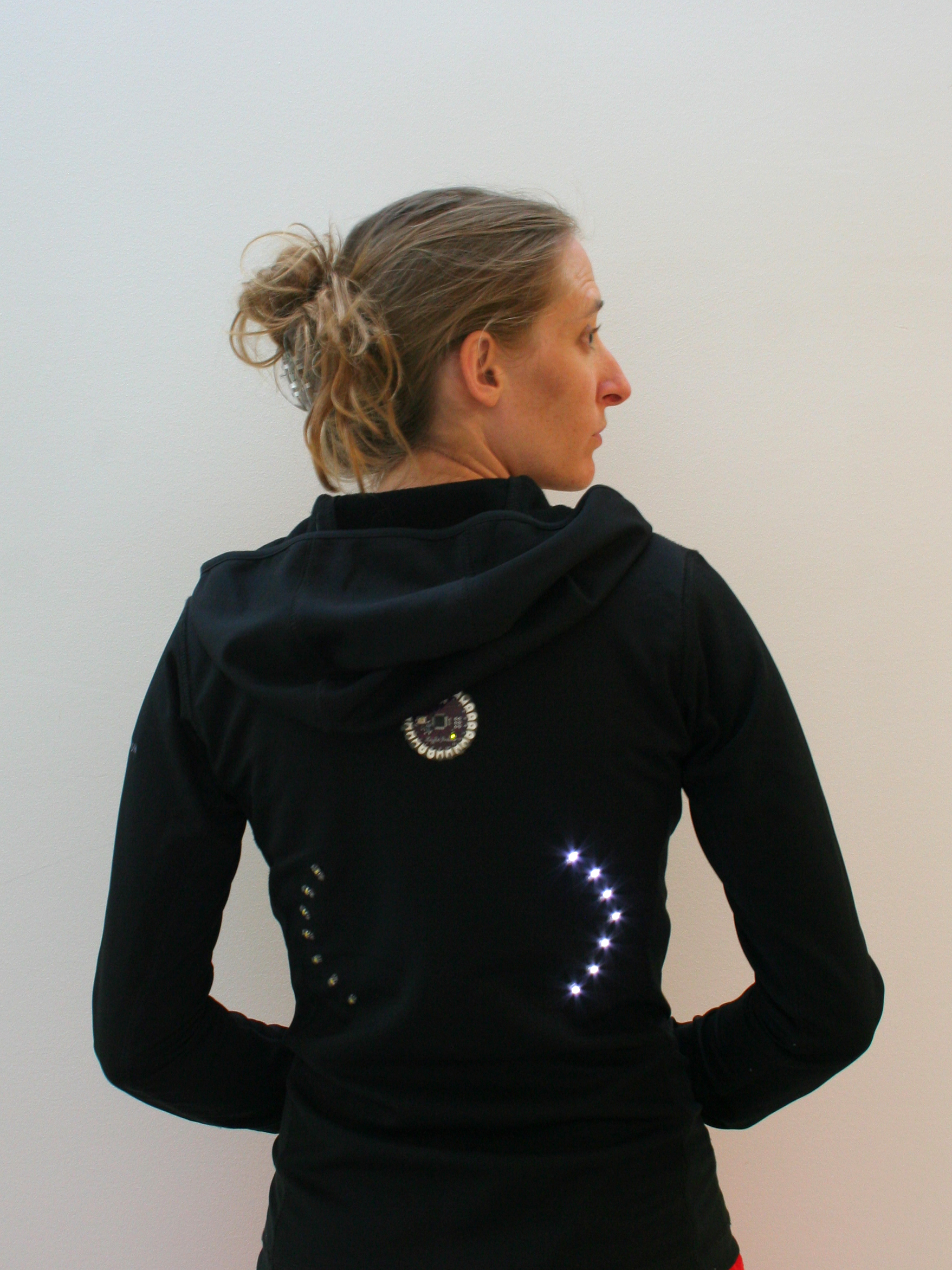Recent News
UNM Engineering names Prabhakar inaugural Cleve Moler and MathWorks Endowed Chair
October 3, 2025
Computer scientist wins Athlete of the Year Award for adaptive skiing technique
May 29, 2025
Hand and Machine Lab wins 2 awards at CHI conference
May 15, 2025
News Archives
Art + science = a winning equation for new computer science professor
August 14, 2019
Imagine covering your walls with circuit-infused paint that can sense temperature and light, making the needed adjustments in a room automatically. Or wearing a sweater made of yarn programmed with code.

Projects like this and much more are what Leah Buechley, who is starting this fall as an associate professor of computer science, will be exploring at The University of New Mexico. She is one of 12 new faculty to join the School of Engineering for 2019-20.
She describes the focus of her work as learning “how computation can be used to open up new potentials in design.” The application of the work is initially in finding new, innovative ways to attract diverse populations — such as girls and those of different cultures — into STEM disciplines by showing that coding, math and science are not separate from art but actually vital to it.
“That’s actually one of the things that attracted me to New Mexico,” she said. “We have a rich cultural history here with rich traditions that include ceramics, weaving and other art. It’s a great way to connect with different cultures and communities.”
Buechley grew up in northern New Mexico, the daughter of two furniture makers, so she was raised in an artistic environment. But at the same time, she was also good at math. She considered them two separate things and was always choosing between the two.
“Those threads were always there,” she said.
She started college as a dance major, but changed to physics her sophomore year, earning a bachelor’s degree from Skidmore College. After graduation, she worked in the art world in New York City for a while, but soon discovered she needed a more stable income, so pursued interests on the “other” side, earning a Ph.D. in computer science from the University of Colorado at Boulder. Although working with code, algorithms and circuits, she also kept up her studies in dance, theater, fine art and design. Her interests have included painting, beading, and making all kinds of art.
She considered art and science as two separate areas until graduate school, when she discovered that art is very much integrated into science and computers, which opened up a whole new world of possibilities for her ideas.
Her creations and inventions are aesthetically pleasing while also being educational and functional. Her LilyPad Arduino allows users to create interactive textile projects, and Chibitronics Circuit Stickers open up the world of paper-based electronics. She also has designed computational ceramics through 3D printing and computationally-generated earrings.
After earning her doctorate, she was a professor at the MIT Media Laboratory and founded Rural / Digital, an independent design and engineering firm that focuses on technology, design and learning. She received the National Science Foundation CAREER Award in 2011 and the Edith Ackerman Award for Interaction Design and Children in 2017.
As a designer and inventor, Buechley is familiar with the commercial realm and hopes to continue and expand with commercialization of her work. At UNM, she will also be teaching courses related to human-computer interaction and how students learn through computing.
When she is not working, she is creating or staying active with her 5-year-old son, in addition to skiing, hiking and mountain biking.
Buechley loves spending time outdoors and finds inspiration from nearly everything, ranging from nature to browsing in a yarn store. She feels that her work is more important than ever since computers are ubiquitous in our society.
“It’s more and more important for people to be computer literate, so it’s vital that we create new pathways to interest new populations into computer science and engineering, opening the door to those who may have never considered it a possibility before,” she said.
